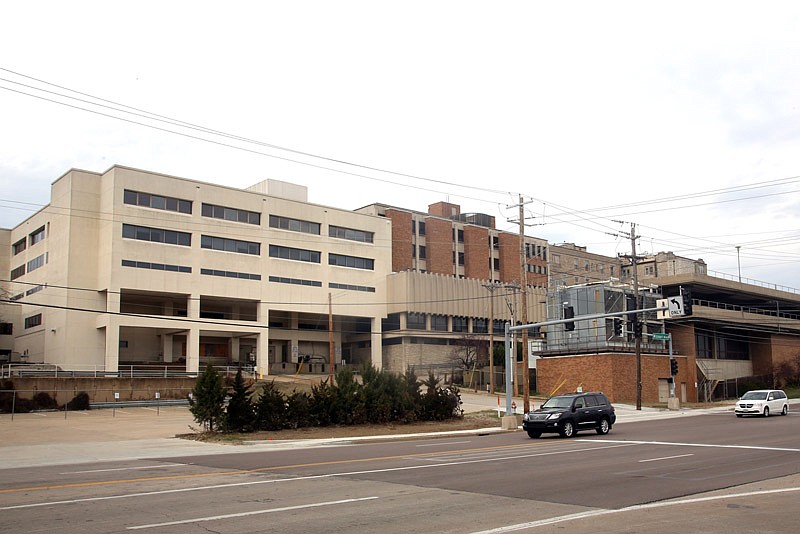The Jefferson City Public School district's Board of Education recommended its two members on the Jefferson City TIF Commission vote for approval of a proposed project to redevelop the historic St. Mary's Hospital site using tax increment financing (TIF).
Jefferson City-based Farmer Holding Company proposed two projects to redevelop the site to the TIF Commission and is seeking between $6.7million-$7.3 million in taxpayer assistance to make the projects feasible. The TIF Commission will vote Wednesday night on whether to recommend approval or denial of the TIF application to the full City Council, which is expected to decide the matter later this summer.
The board spent almost an hour discussing the matter among themselves before reaching a conclusion. Before discussion started among the members, the board also heard a presentation from FHC attorney Korb Maxwell.
FHC proposed building a $44.6 million project which would house a proposed center for Lincoln University to possibly use for an expansion of its nursing or other programs. The project would also contain four pads for use by retailers and restaurants. A proposed commercial project would simply include six pads for commercial use.
Both projects renovate the existing hospital and medical supply office for office use. Farmer Holding is seeking $7.3 million in TIF assistance for the LU project or $6.7 million for the commercial plan.
In April, Jefferson City voters voted to raise $130 million to build a second Jefferson City high school through two new property tax levies.
FHC proposed taxpayers pay for their share primarily through two sales taxes, including a 1 percent sales tax expected to last 40 years. These will generate a combined $6.65 million for the Lincoln project or $6.02 million for the commercial project. The company also proposed to capture 0.75 percent of the 1 percent of the city's economic activity taxes not captured by the TIF.
Maxwell told the board because of the passage of the new property tax levies, the TIF will be paid off about three to four years faster than Farmer Holding's initial expectations of a 23-year pay off.
Board Member Pam Murray was skeptical of the board's responsibility to create new business in the community.
"Economic development is very important, but it is not the role of the school district," Murray said. "When we look at our long-term goals, do we get deferred?"
JCPS Superintendent Larry Linthacum said Unilever received a tax abatement of about $119,000 last year. Board Treasurer Lorelei Schwartz told Murray that last year the company paid a personal property tax of about $891,000, though, some of which went to the school district.
JCPS Board Vice President Rich Aubuchon said the district needs to be good members of the community after the community stepped up and approved the new property tax levies.
"You start talking about being good partners with businesses in this community that help drive us," Aubuchon said. "There's no question, I'm supportive of it."
During his presentation Maxwell argued the project would not be viable without taxpayer assistance. FHC also contends either project chosen will have an economic benefit of about $1.6 million per year on the city after the TIF is paid off.
The project is difficult, FHC contends, because of the amount of work required to convert a former hospital into office space. FHC projects returns of 8.65 percent on the LU project and 8.79 percent on the commercial project.
City accountants said without TIF funding Farmer Holding would have a return on the project of about 3.2 percent. Farmer Holding said it's minus 6.32 percent. Maxwell told the board it's tough for a developer to take on a project of this size in this part of the country for even an 8 percent return.
"That doesn't happen in Jefferson City, that doesn't happen in Kansas City, that doesn't happen in St. Louis," Maxwell told the board.
"People get excited about 8 percent returns in LA or New York. They don't get excited about 8 percent returns in flyover country like all of us live."
The school board was split on the matter, with five members voicing support, one member voicing opposition and three abstaining.
Ultimately, the board decided supporting the project and use of taxpayer funds is an investment the school board wants to make.
"In some ways it's no different than putting money in an investment account or a retirement account and you're hoping you're going to have a return on that investment," Jefferson City Board of Education President Steve Bruce said. "Sometimes the market goes grey guns, sometimes it doesn't do as well as you'd hoped."

